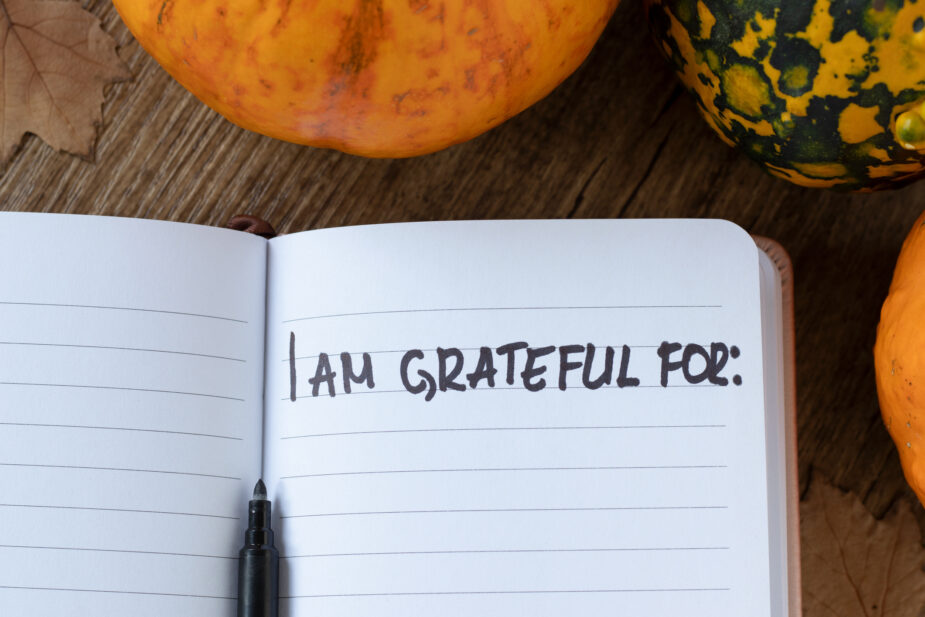Riding on my bike through the park near my house, I noticed the chirps of the birds, the rush of the wind, and the crunch of red-orange leaves under my tires as they whirled under me. But I didn’t just pay attention to these things; I was saying quiet thank-yous as I rode along. I started doing this a couple years ago during the height of the pandemic in an attempt to ease my mind. What used to be a challenge I set for myself has turned into a habit: the act of intentional gratitude.
Around Thanksgiving, gratitude is always a present theme, it’s in the name, of course. But while it’s easy to remember to be grateful on Thanksgiving day, for those who celebrate, practicing small moments of gratitude on a daily basis can do wonders for your health and sense of belonging. In times of uncertainty and change, gratitude can be an unassuming hero.
A substantial body of psychological research links gratitude with positive mental and physical health outcomes including higher emotional and social wellbeing, lower risks for anxiety and depression, better sleep, and even stronger markers for cardiovascular health. Practicing it is simple: express thanks, and do it more than you normally would. That could look like thanking someone or something out loud, or writing your thoughts down. Like any habit, it can feel unnatural at first, but over time, you may just notice a change in your mindset.
Dr. David DeSteno, a psychologist at Northeastern University who has spent years researching the impacts of gratitude, encourages people to express thanks for the ordinary things in their lives, as well as the bigger ones like family, community, and health. Nothing is too small; a short line at the grocery store checkout or someone giving up their seat on the bus can be worthy of note. Picking out those moments makes it easier to point to positive everyday occurrences and build a habit of appreciating your surroundings.
But gratitude does more than make us feel good individually, it shapes how we show up for others, creating a “ripple effect” of action. Some studies have shown that when people experienced gratitude, they were more likely to pay it forward by helping someone or doing a good deed. This practice can strengthen contributions to our communities and foster the trust that binds people together.
As this season reminds us to pause and reflect, practicing gratitude can extend into the new year and beyond. It can be a quiet, daily act that increases our connection to our surroundings, helping us move through uncertainty with a little more grace, and a clearer sense of connection.
Written by Shani Laskin

